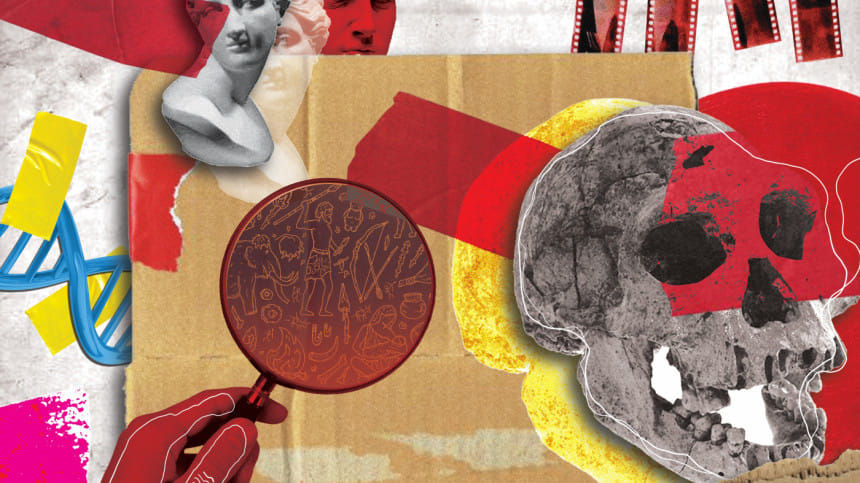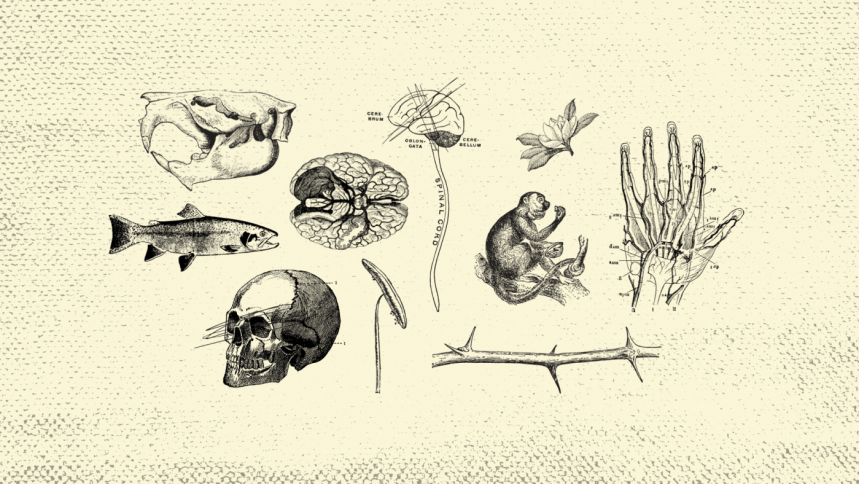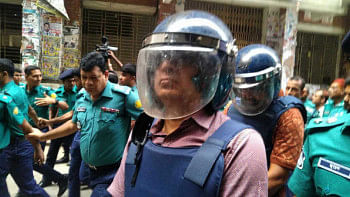Picking your major: A case for Anthropology

If you're a high school student in Bangladesh, just on the precipice of finishing your HSC or A levels, the next hurdle down the line involves many questions that you might not have the answers to immediately.
The first question that comes to mind is where you will be going next. However, let's leave that discussion for another day, because in retrospect for me, picking the right major might be the most important answer one needs to search for.
Traditionally, most of us go through school thinking we will either be pursuing a science or commerce subject as our major, but there are so many more degrees out there that might be an even better choice for you.
While I completed my degree as an Economics major, I did venture out and do courses for other subjects to see what piqued my interest. One class that did capture my interest was Anthropology.
To give a brief overview of what Anthropology entails, Zainab Rahman Chowdhury, an Anthropology undergraduate student from Independent University, Bangladesh (IUB), helped break it down for me.
"For me personally, my interest in the subject came from having discussions with my sister, who was studying Anthropology. Simply put, as a major it tries to shape the way in which we view things. It is a subject that makes you question things and existing practices to better understand why we have certain beliefs and find alternatives," she said.
Zahra Mayeesha, a research assistant at BRAC University (BRACU), further elaborated, saying, "I would define it broadly as a science about human society and behaviour. Some people confuse it with Humanities, but that's a discipline that studies different aspects of human culture or society as opposed to Anthropology, which is a social science that studies humanity holistically."
Now, I know what the next most important question is, and that is about the type of career opportunities you can get as an undergraduate from anthropology.
Here, Zahra explained, "In Bangladesh, primarily research assistantships, is the most standard kind of job you can expect with a bachelor's degree. Anthropology is a field where you need to go into further studies to actually have good career prospects."
Nooha Sabanta Maula, a lecturer at BRACU, has worked in a variety of fields before coming to her current job. Giving her own advice for budding anthropology undergraduates, she said, "At the undergraduate level, Anthropology pushes students to develop critical thinking skills. The inherent multidisciplinary nature exposes students to perspectives that go beyond their own field. Even if one does not aim to become an anthropologist, it's useful to approach the world from an anthropological perspective. Anthropology students are also taught research skills that come in handy. This makes Anthropology transferable to any sector with various scopes."

When asked what type of skills help one excel in the subject, Zahra said, "I would say critical analytical skills and very good writing skills. Neither are skill sets that Bangladeshi schools excel at teaching, to be honest, so students generally struggle when they initially start studying Anthropology. But I don't think that needs to be a barrier to entry, as long as one is willing to put in the effort to acquire those skills when they join university."
Perhaps the most interesting element about Anthropology, for me, is the flexibility to dive deep into topics that actually interest you. When I look at the more traditional subjects we study, they only allow you to do so much and are greatly limited to what academia has outlined for them already.
However, for Anthropology, the world truly is your oyster. Alhan Arsal, a support consultant at a private organisation, centred his thesis on how we interact with media, mostly in context of modern globalisation and social media. Using a focused approach, he tried to understand how media shapes us and we shape media by observing the intricacies of professional wrestling, something both of us are big fans of.
"When I was initially planning out what to base my thesis on, my supervisor advised me to concentrate on something that I found interesting, as that would make it easier for me to really dive in deep and write a very interesting thesis," Alhan shared.
While I am sure this will not deter the thousands of Engineering and BBA students on their grand quest, I hope by giving you all a small glance into Anthropology, it might inspire some of you to consider it as your major for when you get into university.
If nothing else, just know that there are more options for a major in university outside of the traditional topics you have been told about all your life.
Aaqib Hasib is a sub-editor at City Desk.

 For all latest news, follow The Daily Star's Google News channel.
For all latest news, follow The Daily Star's Google News channel. 









Comments